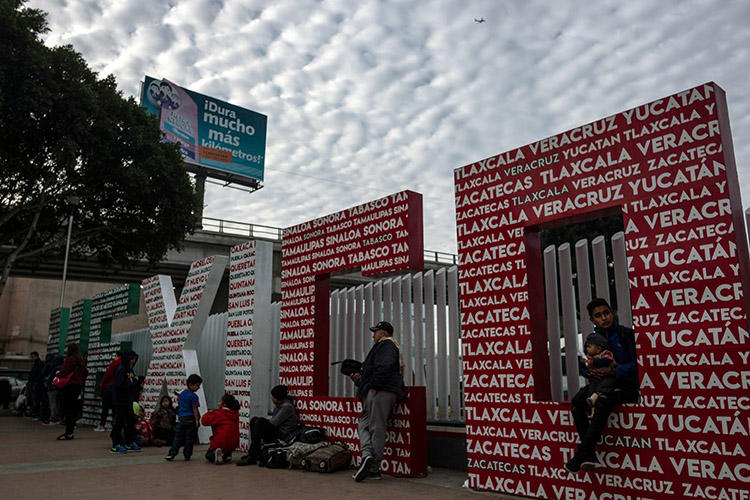Officials from Mexico’s National Institute for Migration denied entry to at least two international journalists who tried to enter the country in January 2019 to cover a migrant caravan in Tijuana.
Kitra Cahana, a freelance photojournalist and filmmaker with U.S.-Canadian citizenship, told CPJ she was denied entry twice, and the Los Angeles Times reported that Daniel Ochoa, a photographer for The Associated Press, was also denied entry.
Cahana told CPJ in an email and over a phone call that when she traveled to Mexico City from Montreal, Canada, on January 17, 2019, Mexican immigration officials held her for 13 hours and denied her entry without providing a reason.
The journalist, whose work has been published in National Geographic and The New York Times, spent approximately six weeks covering the migrant caravan in Tijuana between November 2018 and mid-January 2019.
Cahana said that the officials confiscated her cell phone and would not allow her to make calls. Despite repeated requests, she said she was not allowed to contact the U.S. Embassy for assistance and was not provided with a translator. Cahana said there was a language barrier and that she was given conflicting responses from officials. She said when she asked one Mexican official why she was stopped, he said “Interpol,” and when she asked if it was Americans, he said “yes.” Cahana said that when she was stopped at the border later in the month, a different official told her that the agency generally didn’t know where the alerts came from.
U.S. Customs and Border Protection agents had questioned her in U.S. customs preclearance in Montreal before she connected in Detroit on her flight to Mexico.
Cahana said she attempted to enter Mexico a second time by foot, through a port of entry in Ciudad Hidalgo, a city on the Mexico-Guatemala border, on January 26. She was detained for approximately five hours and again denied entry without being provided with a reason, she said.
“It creates a climate of fear for journalists who want to cover migration,” Cahana told CPJ. “I’m already thinking about the decisions I’m making. Are journalists, especially self-funded or freelance journalists, going to risk spending money on a flight if they might be denied entry?”
The Mexico Embassy in Washington, D.C. did not immediately respond to emailed requests for comment from CPJ. The National Institute for Migration in Mexico did not immediately respond to phone calls.
In a separate case, the Los Angeles Times reported that AP photographer Ochoa was detained for four hours and denied entry when crossing into Mexico from San Diego on January 20. According to the Los Angeles Times, U.S. Customs and Border Patrol agents had previously photographed Ochoa and Mexican police had photographed his passport.
Ochoa declined to comment to CPJ for this article.
Cahana told CPJ that Mexican police photographed her passport. CPJ is aware of at least four journalists who said their passports were photographed by Mexican police. Emilio Fraile, a Spanish freelance photojournalist, told CPJ that the officers told him that they were going to share the passport photographs with U.S. border agents.
U.S. Customs and Border Protection did not immediately respond to a request for comment from CPJ. A CBP spokesperson told the online site Bustle that CBP “did not pass any form of security alerts to the Mexican government on these individuals.”
The Los Angeles Times reported that two attorneys from Al Otro Lado, a nonprofit legal services organization, were denied entry into Mexico on January 28 and 31. Both had worked closely with migrants in the caravan.
Editor’s note: The sixth paragraph has been corrected to reflect that Cahana was questioned in U.S. Customs border preclearance in Montreal, not in Detroit.
